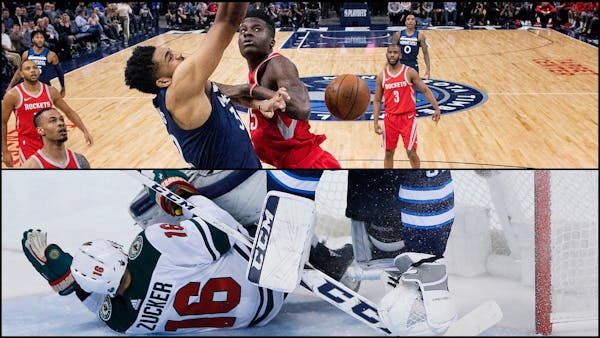Quotes from news releases rarely offer much insight or truth, but the one included on the Minnesota Wild's release on the firing of Chuck Fletcher (or non-renewal of his contract if you want the soft version) from owner Craig Leipold pretty much sums up the general manager's nine-year tenure. It reads, in part:
"Chuck and his staff built a winning culture and a perennial playoff team. For all of that I am grateful. I feel it is time for a new approach aimed at delivering a Stanley Cup to the deserving fans of the State of Hockey."
That was Fletcher. Some good, some bad. Teams that competed and reached the postseason each of the last six seasons but never showed that they were built for a long playoff run or achieved sustained postseason success.
To understand how we got from May of 2009, when Fletcher was hired, to Monday when he was let go, it's instructive to look at the best and worst moves he made. Such things are always done with the benefit of hindsight, but that is how tenures are often judged.
THE GOOD
2010 draft: In the second draft under Fletcher, the Wild took Mikael Granlund in the first round and Jason Zucker in the second round. Both have evolved into high-end forwards and key contributors for playoff teams.
Free agent deals for Ryan Suter and Zach Parise: The matching 13-year, $98 million deals for Suter and Parise will make life harder for the next Wild general manager as the players age and the cap hits prove to be burdens. But the Wild had missed the playoffs four consecutive seasons before those two arrived, and interest in the franchise was sagging. Since then, Xcel Energy Center has been full and the Wild has made the playoffs every year. It hasn't led to the ultimate return on investment in terms of a Stanley Cup title, but the moves were still worth it.
Nino Niederreiter trade: In 2013, Fletcher dealt useful but limited forward Cal Clutterbuck and a third-round pick to the Islanders for Niederreiter, a highly touted but struggling young player at the time. Nino has averaged 20 goals in five years with the Wild and is a key forward.
Devan Dubnyk trade: The deal with the Coyotes in the middle of the 2014-15 season that netted Dubnyk for a third-round pick solidified the goalie position in that season and beyond. It's unlikely the Wild has a six-year playoff streak without that deal.
Eric Staal signing: After trying and failing to acquire veteran scoring in previous years, Fletcher struck gold with Staal. He's had a rebirth with 70 goals in two years here.
THE BAD
Nick Leddy for Cam Barker trade: In one of Fletcher's first big trades, he dealt Leddy to the Blackhawks for Barker in a swap of defensemen. Barker struggled in 71 career games for the Wild and had a short-lived NHL career after leaving Minnesota. Leddy has carved out a nice career with the Blackhawks and Islanders.
In-season deals: The Dubnyk trade aside, Fletcher has made plenty of in-season deals designed to bolster the Wild's playoff prospects with minimal return (see: Sean Bergenheim, Matt Moulson and Chris Stewart, to name a few). In return, Fletcher has shipped out valuable draft picks, leaving the Wild shorthanded when it came time to replenish talent. In the 2016 draft, for instance, Minnesota had just a first-round pick, a fourth-round pick and two sevenths.
Recent drafts: From 2011-present, you'll find some hits (Matt Dumba and Jonas Brodin in the first round) but plenty of draft misses and not quite enough players who have developed into contributors during that time. Some still might — the recent surge of 2011 fifth-rounder Nick Seeler is encouraging — but the Wild hasn't had enough picks and hasn't done enough with its draft capital in recent seasons under Fletcher. More production from up-and-comers might have fueled deeper playoff runs.
Jason Pominville: The Wild paid a heavy price to acquire Pominville (including a first-round pick and second-round pick) from Buffalo and then paid up again when re-signing Pominville to a five-year, $28 million extension. Pominville had 30 goals in his first full season but never topped 18 in his other three with Minnesota.
Losing Alex Tuch and Erik Haula: Fletcher was determined not to lose any of the Wild's defensemen to Vegas in the expansion draft, but in the process Tuch and Haula wound up with the Golden Knights. Tuch, a 2014 first-round pick, had 15 goals this season and provided a physical presence while Haula potted a career-high 29 goals this season. Both are still playing with the surprising Golden Knights in the playoffs while the Wild — and Fletcher — are done.
The sum of those parts is fairly even, and it helps explain where the Wild stands: good but not great, a playoff team but not one that has reached even the conference finals under Fletcher. It will be interesting to see if a new GM will be able to maneuver the Wild into better position given some of the inherited constraints.
